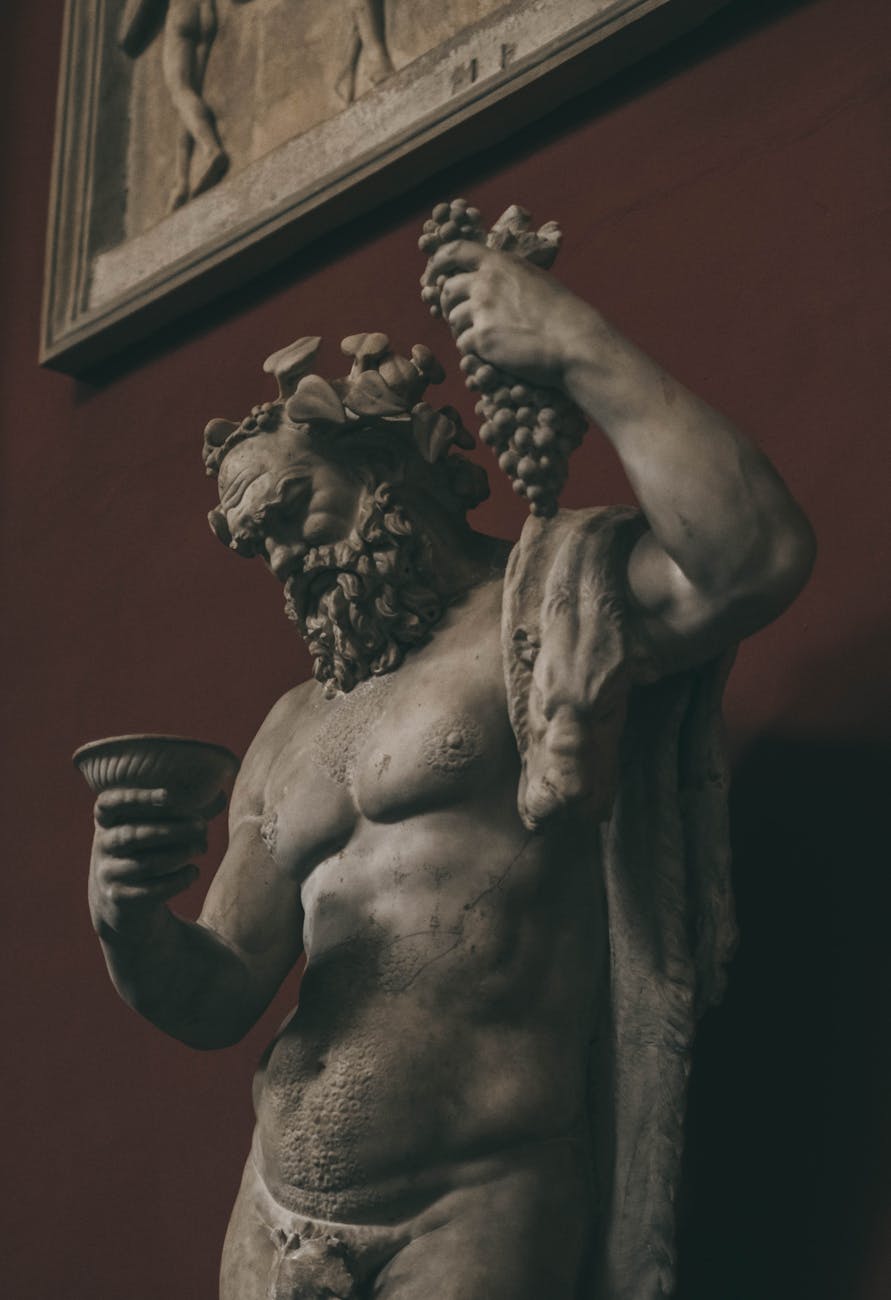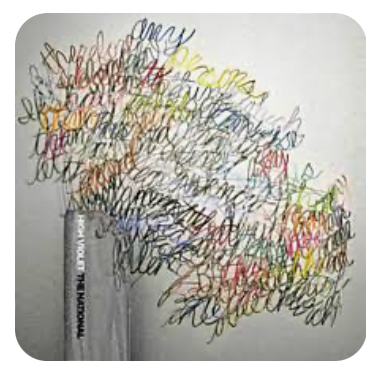Philosophers Slavoj Žižek (The Specre of Ideology) and Fredric Jameson are attributed with the startling harrowing observation relevant to the contemporary world: it is easier to imagine an apocalyptic end of the world than it is to imagine the end of capitalism.
Fredric Jameson reframed this, proving applicable to the deconstruction of systemic patriarchy, “Someone [presumably Žižek] once said that it is easier to imagine the end of the world than to imagine the end of capitalism. We can now revise that and witness the attempt to imagine capitalism by way of imagining the end of the world.”
The “attempt to imagine” renders the issue, then, one of an inability to imagine what comes after – either by unwillingness to be open to alternate possibilities or a fundamental lack of know-how, due to lack of imagination itself. Of course, we must consider consequences – if the way of life we know ends, it needs a replacement. We fear what Alfred North Whitehead once intuited, a systemic failure. (Whitehead, Adventures of Ideas, 99, 162) However, we also fear change itself, as Mary Shelley captured succinctly in her novel Frankenstein: or, the Modern Prometheus, “nothing is so painful to the human mind as a great and sudden change.”[1]
Partly due to long term systemic enculturating, we cannot imagine capitalism’s demise because we DON’T WANT TO – it would risk conceding a flaw in the system that won the wars, and other glaring flaws we’ve practiced selective blindness to, since. One flaw would render the system too vulnerable as Whitehead intuited in Adventures of Ideas, “an attack upon systematic thought is treason to civilization.” (Whitehead, Adventures of Ideas, 162) ALL the prime features ripe for reimagining are umbrella-ed under the same hegemonic system – patriarchy. Thus, we cannot fathom the extent to which this reimagining must reach. Economic practices became politicized, including the marketing phenomena that followed with its heavily gendered dimensions. [Indeed, gender stereotyping among marketing its diabolically genius – its dark play at its finest. Just watch a couple episodes of “Mad Men” to witness evidence of this in its ‘golden years.’] Likewise, play fell into this scheme; it’s all monetized and instrumentalized to some utility, if not outright weaponized.
However, perhaps for this unfortunate consequence, play benefited from a veritable cultural reawakening, being revived across scholarship from another formative period in ‘western’ history: the romantic resistance to Enlightenment ideals as industrialization. For the same reasons Josef Pieper (in Leisure: The Basis of Culture) noted the wake of the war devastation was “not the time to talk about play” contrarily connoting its opposite (for play’s value of novelty & optimism made it exactly the right time), plenty of people were thinking about play and its value apart from the traditional understanding of instrumental ‘value’ or corruptible utility. From sociologist Johan Huizinga and philosopher Moritz Schlick to the theologians Harvey Cox and David Miller, positing play became a veritable phenomenon at this time, including how it need not be an abrasive or childish topic. Play could pose intrinsic value, finding meaning in life, as well as the extrinsic applications toward society. A fear of entertaining novelty, like Pieper’s intuition of anachronism, is connected to the socio-political and incipient economic hegemony of the victors of the war: it was ‘us’ against ‘them.’ In politico-economic terms: if liberty prevailed, capitalism, too, prevailed over the unspeakable alternatives: socialism or communism. Who would dare challenge the ‘clear’ winner?
Two iconic play scholars at the turn of the millennium, Mihai I. Spariosu and Brian Sutton-Smith, explicated the concept of play as couched in these western -thus, heavily patriarchal- framings. Spariosu’s Dionysus Rebornarticulates how the play we know is a filtered by-product of its usurpation by power constructs, effectively seeing play through Huizinga’s lens of agon, vying for cultural authority. In other words, play and power are expressions of one another, according to Spariosu. Sutton-Smith, further, revealed various rhetoric of play, owing to its ambiguity, has all been couched in paradigms of power and utility, among numerous others. These, too, are entwined in economic concerns for efficiency, which became inextricable from politics, especially given the post-war years and ‘western’ victories against the terrifyingly unspeakable ‘other.’ All of these framings prove endemic to the culturally ingrained ‘value’ system. Thus, most -if not all- of the ‘play’ we know is a filtered corruption induced by some or other patriarchal value criteria, from light-hearted childishness, or ‘primitive play’ as Suits referred to (apparently) ‘noninstrumental’ play, to a guise of sportsmanship and the fringes of other adulterated forms, or the ‘sophisticated’ instrumentalized varieties often dubbed ‘relaxation’ or escapism; in other words, most of our ‘play’ falls along a spectrum of distortion, manifest violations of the play-impulse known as ‘dark play.’
However, play, as Spariosu tacitly argued, is, also, a diagnostic tool of patriarchy. (Spariosu, DR, xi, 5) It is a diagnosis of the “mentality we all share” because it is a lens to see through the veil of patriarchy (partly via “discourse analysis”) to reach for the horizon of the more broadly -nay deeply- shared mentality or condition of playfulness, for play is evolutionary and more universal than we currently acknowledge (at least if we unthematized it, liberate it from patriarchal shackles of utility). Thus, what we must do to imagine, freely and creatively, is find a solution such as found in the concessions of Post-Growth economic theory, which aims to cultivate change without pleading a sacrificial overhaul of the austere. This deconstruction can benefit, productively, from a playful disposition (esp. of openness and humility) to thwart the fears of a catastrophic system collapse.
Since Spariosu critiqued the western discourse for aesthetic as well as empirical concerns in both philosophy and science, and romantic thinker Schiller historically paired aesthetics with play in his Letters, we might see play as an ultimate form of beauty via reflexive, aesthetic appreciation. Whitehead quoted Lytton Strachey on “the Poetry of Blake” to note, “the two most obvious characteristics of Nature…are loveliness and power.” (Whitehead, Adventures of Ideas, 11) From Spariosu, we know we can equate power with play, for each were expressions of the other, particularly in terms of the agonistic impulse, or competitive merit. (Spariosu, DR, 6) And, from Whitehead, beauty, by a slight “stretch of the metaphor” from the sensible’ variety becomes ‘intellectual,’ “there is grandeur of achievement in the delicate adjustment of thought to thought, …we may term it ‘beauty’.” (W, AoI,11) This intellectual beauty strives for “the highest ideal of satisfaction possible for actual realization…” thus, it is not mere utopian fantasy or anachronistic ideal but achievable. (W, AoI, 11) Thus, progressing from thought to thought, in the process he called the “persuasion” of civilization (rather than force or coercion), we find the third identified variety of beauty for Whitehead: moral. Morals, as behavioral goals, or ethical standards meant for the good of a group among ideally coexistent persons, become aesthetic, or beautiful as “a criticism founded upon taste,” according to Whitehead. (164)
Such ideals, like utopia and even morality, prove transient, as classic play scholar Bernard Suits intuited in The Grasshopper, “relevant only to the extent that the ideal has not [yet] been realized.” (Suits, The Grasshopper,169) This transience is part of the charm akin to Whitehead’s noting of “tragic beauty.” (W, AoI,109, 296) Part of the tragedy is our slow approximation of a moral compass, “the gradual perfection of conduct.” (25) Since we are interested in -and driven by- beauty, we play on, striving for the attainment of the ideal, our lived aesthetic ideal, hopefully embodied by our reflexive appreciation of our attainment(s), which becomes embedded as the civilization we make by our living our emulations of ideals.
Huizinga noted “Man [sic] the Maker as a potential nomenclature for our species: “Homo Faber.” (Huizinga, Homo Ludens, Foreword) ‘To make’ comes from the word poiesis. Play, either via language or embodied performance, facilitates poiesis, our ability as makers. Spariosu, similarly, argued of poeisis in relation to the prerational mentality which “does not distinguish between speech and action, cognition and emotion. Language is concrete and practical, having poetical, that is performative power…” (Spariosu, DR, 8) While Spariosu pointed us to the growing performative praxis of EcoPoetics, which aims to effect change in part by entraining us to the reflexive pace of poetry, Whitehead, too, advised “it is our business – philosophers, students, practical men [sic] – to re-create and re-enact a vision of the world,” proving prescient for Charles Taylor’s implored performative repertoire in A Secular Age. (Whitehead, Adventures of Ideas, 99) This re-enactment is partly linguistic and like any system development, should be or include “a critical understanding of the relation of linguistic expression to our deepest intuitions…” (Whitehead, Adventures of Ideas, 163)
After all, as Taylor intuited, “civilization is a game we play together,” and we can “transform society according to a new principle of legitimacy” “just by our acting together in this [new, playfully performative] way.” (Taylor, ASA, 142, 200, 194) Thus, the game need not be patriarchal; while even the males plied change from within the system, they could not see beyond their own endemic blinders, at least not far enough. Horizons, the ever-unreachable boundaries, only coalesce once we learn to see the filter and therefore what we must see beyond; we are at the precipice of a new ungendered and unadulterated horizon of play. We just need to channel a bit of bravery to accompany our play as we make civilization anew.
-RED 5/23/24
[1] Mary Shelley, Frankenstein, or the Modern Prometheus, annotated for Scientists, Engineers, and Creators of all kinds, David Guston, Ed Finn, and Jason Scott Robert, eds. (Cambridge: The MIT Press, 2017), 164.
Other works cited:
Huizinga, Johan. (1938,1950). Homo Ludens: A Study of the Play Element in Culture. Beacon Press, Boston.
Pieper, Josef. (1952). Leisure: The Basis of Culture. New York: Random House.
Spariosu, Mihai I. (1989). Dionysus reborn: Play and the aesthetic dimension in modern philosophical and scientific discourse. Cornell University Press.
Sutton-Smith, B. (1997). The Ambiguity of Play. Cambridge: Harvard University Press.
Taylor, Charles. (2007) A Secular Age. The Belknap Press of Harvard, Cambridge.
Whitehead, Alfred North. (1967) Adventures of Ideas. New York: The Free Press.
—. (1929) The Function of Reason. Princeton: Princeton University Press.








Leave a comment